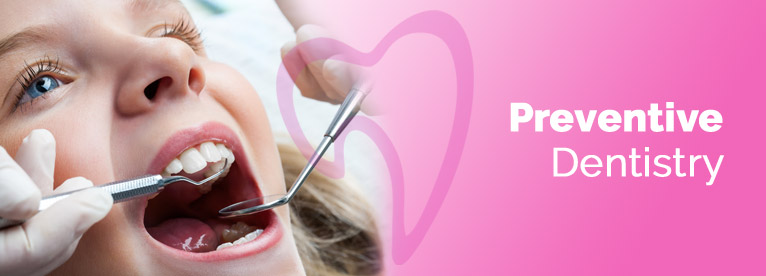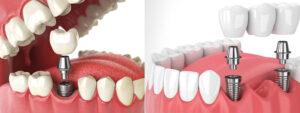Welcome to our blog, where we’re diving into the world of dental care and highlighting the importance of preventative dentistry. We all know that a healthy smile can boost our confidence and overall well-being. So why not take proactive steps to maintain it? By implementing simple practices and regular check-ups, you can achieve optimal oral health and keep those pearly whites in tip-top shape! In this article, we’ll explore common dental health issues, effective oral hygiene practices, regular dental check-ups and cleanings, as well as other preventative measures such as fluoride treatments and sealants. Are you ready to unlock the secrets to a healthy smile? Let’s get started!
The Importance of Preventative Dentistry
Maintaining good oral health goes beyond just brushing and flossing. It involves adopting a proactive approach known as preventative dentistry. This philosophy aims to prevent dental problems before they even have a chance to develop, saving you from unnecessary pain, discomfort, and costly treatments down the line.
Preventative dentistry is crucial for several reasons. It helps in identifying issues at their earliest stages when they are easier to treat. Regular check-ups allow your dentist to detect any signs of decay, gum disease, or oral cancer before they become major concerns.
Additionally, by practicing preventative dentistry techniques such as proper oral hygiene and regular cleanings, you can keep your teeth strong and healthy. This means less time spent in the dentist’s chair dealing with fillings or extractions!
Not only does preventative dentistry benefit your teeth and gums but it also has positive effects on your overall health. Research suggests that poor dental hygiene can contribute to various systemic diseases including diabetes and heart disease.
Now that we understand the importance of preventative dentistry let’s explore some common dental health issues and learn how we can prevent them through effective practices!
Common Dental Health Issues and How to Prevent Them
Maintaining good dental health is essential for a healthy smile. Unfortunately, there are several common dental issues that many people face. However, with proper preventative care, these issues can be avoided or minimized.
One of the most prevalent dental problems is tooth decay. This occurs when bacteria in your mouth produce acid that erodes the enamel on your teeth. To prevent tooth decay, it’s crucial to practice effective oral hygiene habits such as brushing twice a day with fluoride toothpaste and flossing daily.
Another common issue is gum disease, which affects the tissues surrounding and supporting your teeth. Poor oral hygiene can lead to gum disease, so it’s vital to brush properly along the gumline and schedule regular professional cleanings.
Sensitive teeth can also be a nuisance for many individuals. If you experience discomfort while consuming hot or cold foods or drinks, it could indicate enamel erosion or receding gums. Avoid acidic foods and beverages and use desensitizing toothpaste recommended by your dentist.
Bad breath is another concern that often stems from poor oral hygiene practices or underlying health conditions like dry mouth or infections in the mouth. Practicing thorough brushing and flossing techniques alongside regular dental check-ups can help combat bad breath.
Taking preventative measures against these common dental issues will not only save you from potential pain but also save money on costly treatments down the road.
Effective Oral Hygiene Practices
Maintaining good oral hygiene is essential for achieving a healthy smile and preventing dental issues. Here are some effective practices to incorporate into your daily routine:
1. Brushing twice a day: Brushing your teeth at least twice a day, using fluoride toothpaste, helps remove plaque and bacteria that can lead to cavities and gum disease. Remember to brush all surfaces of the teeth, including the gums and tongue.
2. Flossing daily: Flossing is often overlooked but plays a crucial role in removing food particles and plaque from between the teeth where brushing can’t reach. Make it a habit to floss once a day to prevent cavities and keep your gums healthy.
3. Using mouthwash: Mouthwash provides an extra layer of protection by killing bacteria and freshening breath. Look for one with antimicrobial properties or consult with your dentist for recommendations based on your specific needs.
4. Eating a balanced diet: A nutritious diet not only benefits overall health but also supports oral health. Limit sugary snacks and drinks as they contribute to tooth decay, while incorporating foods rich in calcium, vitamins C and D, phosphorus, and fiber can help strengthen enamel.
5. Avoiding tobacco products: Smoking or chewing tobacco increases the risk of gum disease, stains teeth, causes bad breath, and can even lead to oral cancer. Quitting tobacco use promotes better oral health as well as overall well-being.
By practicing these effective oral hygiene habits consistently, you’ll be taking proactive steps towards maintaining optimal dental health!
Regular Dental Check-Ups and Cleanings
Regular dental check-ups and cleanings are an essential part of preventative dentistry. These routine visits to your dentist can help detect any potential oral health issues before they become major problems.
During a dental check-up, your dentist will thoroughly examine your mouth, teeth, and gums. They will look for signs of cavities, gum disease, or other dental conditions. X-rays may also be taken to get a closer look at the health of your teeth beneath the surface.
In addition to examining your mouth, the dental hygienist will perform a professional cleaning. This involves removing plaque and tartar buildup from the surfaces of your teeth using specialized tools. They will also polish your teeth to remove any stains and give them a smooth finish.
Regular check-ups and cleanings not only help maintain good oral hygiene but also contribute to overall health. Poor oral health has been linked to various systemic conditions such as heart disease and diabetes.
By scheduling regular dental appointments every six months or as recommended by your dentist, you can stay on top of your oral health and prevent any potential issues from escalating into more serious problems.
So don’t neglect those regular check-ups – they play a crucial role in keeping your smile healthy!
Other Preventative Measures, such as Fluoride Treatments and Sealants
Fluoride treatments and sealants are two additional preventative measures that can help maintain a healthy smile.
Fluoride is a mineral that strengthens teeth and helps prevent tooth decay. It works by remineralizing the enamel, making it more resistant to acid attacks from bacteria and sugary foods. Fluoride treatments are typically applied as a gel, foam, or varnish during a dental visit.
Sealants, on the other hand, provide an extra layer of protection for vulnerable areas of the teeth. They are thin plastic coatings applied to the chewing surfaces of molars and premolars where decay commonly occurs. Sealants act as a barrier between the tooth enamel and plaque-causing bacteria, effectively reducing the risk of cavities.
Both fluoride treatments and sealants are safe and painless procedures that can greatly contribute to your oral health. While they may be particularly beneficial for children with developing teeth, adults can also benefit from these preventative measures.
By incorporating fluoride treatments into your regular dental care routine and considering sealants when necessary, you can take proactive steps towards achieving optimal oral health!
Conclusion
Taking care of your oral health is crucial for maintaining a healthy smile and overall well-being. Preventative dentistry plays a vital role in ensuring that you can enjoy strong teeth and gums for years to come. By practicing effective oral hygiene habits, scheduling regular dental check-ups and cleanings, and considering additional preventative measures such as fluoride treatments and sealants, you can significantly reduce the risk of common dental health issues.
In Phoenix, preventative dentistry is readily available to help you achieve optimal oral health. Whether it’s through routine exams or specialized treatments, dentists in Phoenix are dedicated to providing comprehensive dental care tailored to your specific needs.
So why wait? Take charge of your dental health today by incorporating preventative dentistry into your lifestyle. With consistent efforts and professional guidance from a trusted dentist in Phoenix, you can maintain a beautiful smile that will last a lifetime!












